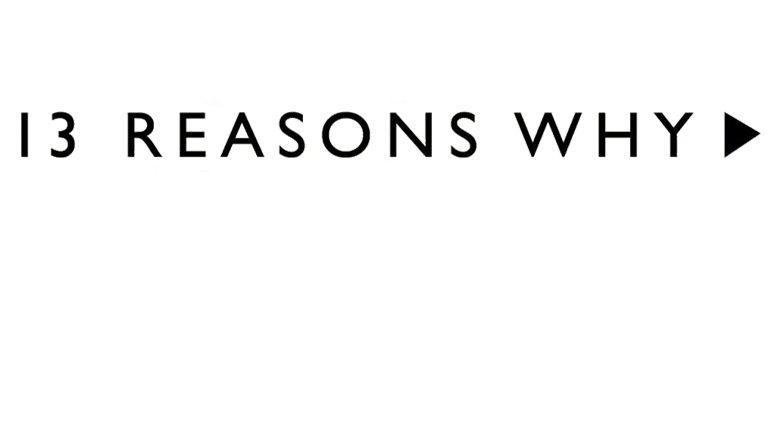In 1597, a play portraying the suicides of two teenagers hit London stages. More than four centuries later, people still discuss and celebrate this play. It has inspired at least a dozen movie adaptations, is referenced in several famous songs and is required reading in most high schools.
So … if “Romeo and Juliet” remains part of the canon of English literature, then why does so much controversy surround the Netflix adaptation of Jay Asher’s novel “13 Reasons Why?”
Asher’s debut novel, published in 2007, tells the story of a high school student named Hannah Baker who commits suicide. Before taking her own life, she makes recordings on seven cassettes, explaining the 13 reasons behind her decision and calling out the names of the 12 people she blames for her suicide. After Hannah’s death, the cassettes are passed around among the classmates she mentioned during the recordings.
Although “The Perks of Being a Wallflower” (1999 novel, 2012 film), “The Virgin Suicides” (1993 novel, 1999 film ), and “Girl, Interrupted” (1993 memoir, 1999 film) are fairly popular contemporary stories about mental illness and teen suicide, none of them received as strong a response – good or bad – as “13 Reasons Why.”
Seven recent teen suicides in a Colorado community near Denver prompted a school district to temporarily ban the novel “13 Reasons Why.” Many school districts have sent home letters and emails to parents, warning about the show’s glamorization of suicide. One such letter can be found here. A group of high school students in Oxford, Michigan, came together to create a project called 13 Reasons Why Not, in which students discussed their own struggles with bullying and depression. However, they also mentioned a person that helped them through their hard times – the opposite of what Hannah does in “13 Reasons Why.”
While both the book and show have sparked a lot of controversy, not everything that has come from it has been bad, such as the amount of people now addressing the topic of mental illness.
Five St. Joseph’s College alumni – including two social workers and two adjuncts from the SJC Long Island’s English department – shared their opinions on “13 Reasons Why.”
SJC Alumni Shed Light on a Difficult Topic
Alexandra Moncayo graduated from SJC Long Island with a bachelor’s in psychology in 2013. She was eager to discuss the show, opening up about the pros and cons of its depiction of teen suicide.

Q: How familiar are you with the show?
A: “I’m extremely familiar with the premise of the show – not just because I read the book, but because I work as a licensed social worker in a residential mental health setting. Several of the individuals I’ve been working with have a history of suicidal ideation, some have attempted to take their own lives, and sadly some still struggle with suicidal ideation as a result of serious and persistent mental illness.”
Q: What is a possible benefit to having a show about this topic become so popular?
A: “Suicide has this institutionalized stigma attached to it, where the individual struggling is perceived as weak, so he or she may be reluctant to seek help. If they do seek help, it is important that people are aware of the suicide ‘red flags.’ This, I think, is the one positive of having the series depicted on Netflix. Someone with no background in psychology or social work can learn to discuss suicide or learn the red flags without even realizing it.”
Q: What are the possible harms of watching this show?
A: “Years of research into phenomena like ‘suicide contagion’ or ‘copycat suicides’ support the idea that depicting graphic suicide may be linked to an increase in suicidal ideation/intent/action. I feel like ‘13 Reasons Why’ does glorify suicide. The message that seems to be sent is one of revenge. This does little to acknowledge the fact that suicide is permanent. My biggest concern in watching the series is for those that identify with Hannah. I don’t want suicide to ever be seen as a viable option – because it is permanent and leaves a scar on everyone in its wake. There are no ‘do-overs’ with suicide; it is a long-term solution for issues that can be mediated with the right help.”
JoAnna Meyers, who received her bachelor’s degree in psychology from SJC Long Island in 2013, deals with the real-life dangers portrayed in this show in her everyday job.
Q: How familiar are you with the premise of the show?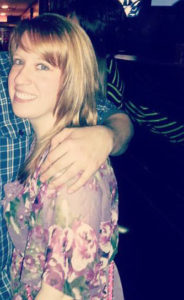
A: “I am a licensed social worker at a local hospital with a behavioral health emergency room. On weekends and some evenings, that is my primary location. I have had patients that range in age from 9-90, that have either attempted suicide or have a plan on committing the act. The premise of the show is a reality in my career.”
Q: As someone with a background in psychology, how do you feel about this show?
A: “I feel the show can be dangerous to vulnerable populations. The show has gained so much attention just based upon suicide, but it is Hollywood’s version of suicide. Within days of the show streaming on Netflix, the amount of teenagers coming into the emergency room with ‘suicide idealization’ increased. I asked the psychiatrists if they felt the increase in numbers was from the Netflix series, and all of their answers were a unanimous yes.”
Q: Do you think there are any pros to having a show like this?
A: “The only pro of this show is that it opens the conversation about teen suicide. But, if a teen is not open to watching the show with either a parent, teacher, or guidance counselor, the talk may possibly not take place. Without a follow up conversation, the content of the show can be harmful to a young viewing audience.”
Brian Hicks, SJC Long Island’s 2013 valedictorian, now works for SJC’s English department. Hicks feels it is important to be able to freely discuss the topic of mental health. He brought up “13 Reasons Why” in the Rainbow of Voices (ENG 119) course he taught at SJC Long Island this spring.
Q: Would you say that discussions surrounding “13 Reasons Why” had more of a positive impact on your classroom?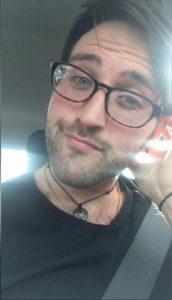
A: “Yes. You need to be able to talk about your mental health without people assuming you are unwell. The disease is not who you are. My students know I used to be depressed. I think for the most part, my students weren’t romanticizing the show. But I think that’s because we were being critical of it and comparing it to other works (Celeste Ng’s ‘Everything I Never Told You’ and Stephen Chbosky’s ‘The Perks of Being a Wallflower’) for subject matter.”
Q: Do you think it’s harmful for students to watch the show? Why or why not?
A: “That I’m conflicted on. I enjoyed the show, but I had a lot of problems with it, like the idea of suicide as revenge. It tells this story of Hannah, who many people relate with, and then she kills herself. She uses it as a revenge tactic to get back at all the people who wronged her, and that is spreading the wrong message. It also doesn’t seem like a permanent death. The way it’s depicted, it seems like Hannah is still there. That’s part of how it’s romanticized. Because when people kill themselves, they are not there for the aftermath.”
Q: If you could say one thing to your students about this show, what would it be?
A: “I would say watch it with a grain of salt. It’s important, I think we should be watching it, and it covers important themes. But I think you need to constantly remind yourself that this is fiction. It’s not a true story, it’s not reality – this is not how it happens. I think that’s very important for young adults to understand.”
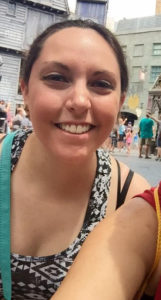 Kristen Roedel, SJC Long Island’s 2014 valedictorian, earned her bachelor’s degree in English from the College. She now works as an adjunct for SJC’s English department. This past semester, Roedel taught Fiction Writing (ENG 107). She said the show has impacted her students quite differently than Hicks’ students.
Kristen Roedel, SJC Long Island’s 2014 valedictorian, earned her bachelor’s degree in English from the College. She now works as an adjunct for SJC’s English department. This past semester, Roedel taught Fiction Writing (ENG 107). She said the show has impacted her students quite differently than Hicks’ students.
Q: How have your students responded to the Netflix original series “13 Reasons Why?”
A: “Many of my students seemed to overtly romanticize these darker subjects, much to my dismay. Students today are more willing to talk about these experiences, but I’m afraid it’s because “13 Reasons” has made depression and suicide ‘beautiful’ for the screen. So while we may be talking more about these very important issues and allowing students to speak their truth, the way in which my students framed their arguments is alarming.”
Kevin Durant collected his bachelor’s degree in mathematics from SJC Long Island in 2013 and his M.A. in 2016. As a teacher of sixth grade math at William Paca Middle School, he said the show doesn’t seem to have affected his students.
Q: How has this show impacted your classroom?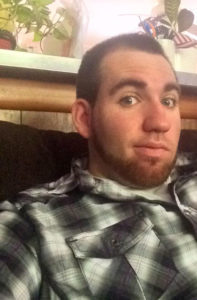
A: “This show did not impact my classroom instruction at all, but it did impact my view of interactions between students and also my own interactions with my students. I more carefully monitor how students are speaking to each other, and I am more conscientious about my interactions with students.”
Q: Has there been any kind of conversation surrounding the show or the topic of it in your classes?
A: “I have not had in-depth conversations with my students about the topic of this show. However, I would not discourage it. It is a very touchy topic that might be avoided by some teachers. But I think it is important that if any of my students have questions, they know they can ask me. I would hope that if I had a student who watched the show and began having thoughts they weren’t sure about, that I could talk to them and get them any help necessary.”
Q: If you could say one thing to your students about this show, what would it be?
A: “Think cautiously about the way you speak to one another, because you don’t know how what you do or say today may affect someone tomorrow.”
Bringing an Important Issue to Light
Despite issues surrounding the way “13 Reasons Why” handles the topic of suicide, it has aided in the war to combat the stigmatization surrounding mental illness. “13 Reasons Why” got the ball rolling by starting more conversations – exactly what Selena Gomez, co-producer of the show, wanted to happen. Facebook partnered with National Suicide Prevention Lifeline back in 2011 to help prevent suicide. They announced plans to enhance their connections in March, after several people committed suicide on Facebook Live. Instagram added a suicide prevention tool as well.
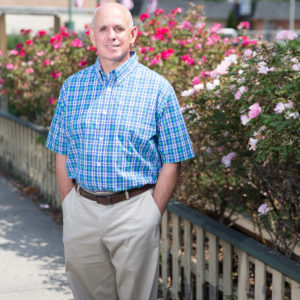 Kenneth Roche, an SJC Long Island 2003 graduate, owns South Shore Mental Health Services in Islip and works as a sergeant for the Suffolk County Police. He offered a PSA about mental health.
Kenneth Roche, an SJC Long Island 2003 graduate, owns South Shore Mental Health Services in Islip and works as a sergeant for the Suffolk County Police. He offered a PSA about mental health.
“Suicide is a devastating byproduct of mental illness. The effects can be far reaching and have a profound impact on families, friends, schools and other aspects of communities. Frequently, the signs of suicide are vague and unnoticed by others, including family members and close friends.
Frequently, the signs of suicide are vague and unnoticed by others, including family members and close friends.”
“It is important for each of us to treat mental illness seriously and not perpetuate the stigma that has been placed on it. If you are contemplating suicide, it is imperative to seek help through either a mental health professional, family member, friend, or clergy. Remember, you are not alone!”
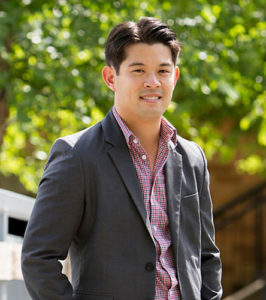 Sam Lee, a mental health counselor at SJC Brooklyn, offered some tips on where SJC students can go if they need someone to talk to.
Sam Lee, a mental health counselor at SJC Brooklyn, offered some tips on where SJC students can go if they need someone to talk to.
“We live in a culture where adolescents and young adults are systematically encouraged by the entertainment industry and social media to glamorize their self-worth. I hope ’13 Reasons Why’ points us toward a culture where communities use open dialogue, psychoeducation and advocacy to fight mental illness and the stigma that perpetuates it.
If you are a St. Joseph’s College student and feel unsafe, please stop by the Counseling & Wellness Center.”
“If you are a St. Joseph’s College student and feel unsafe, please stop by the Counseling & Wellness Center. If you just need to talk, or if you or someone you know is experiencing suicidal thoughts, please text the Crisis Text Line at 741-741 or call the National Suicide Prevention Lifeline at 1-800-273- 8255,” stressed Sam Lee, who also works as a private practice therapist at samleetherapy.com.

